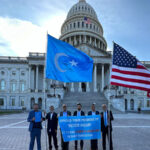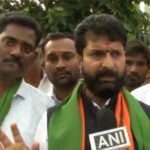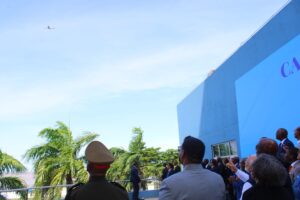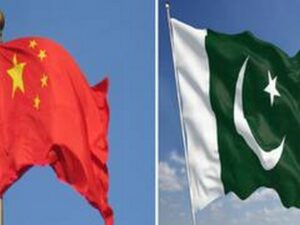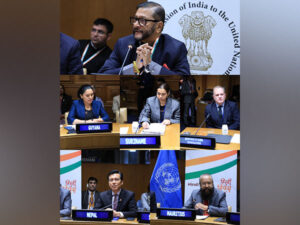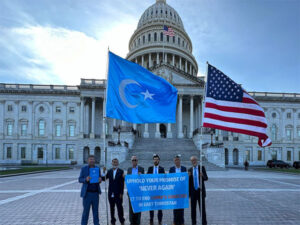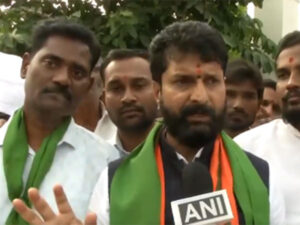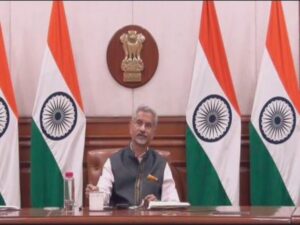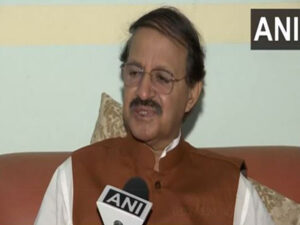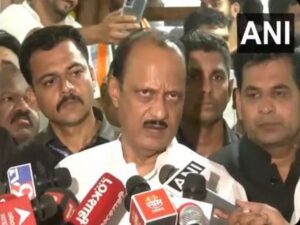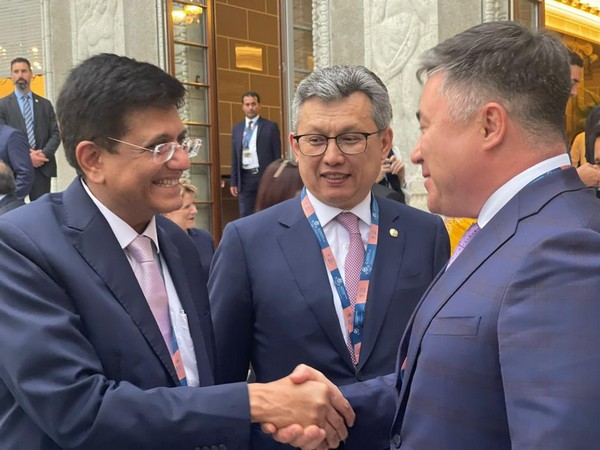
Geneva [Switzerland], June 14 (ANI): On the sidelines of the twelfth WTO Ministerial Conference (MC12), Union Commerce and Industry Minister Piyush Goyal on Tuesday met with the MC12 Chair Timur Suleimenov in Geneva, Switzerland.
Goyal also met with the UK Secretary of State for International Trade Anne-Marie Trevelyan at MC12 at World Trade Organization in Geneva.
The twelfth WTO Ministerial Conference began on June 12, 2022, in Geneva, Switzerland after a gap of almost five years.
The key areas of discussions and negotiations at this year’s conference include WTO’s response to the pandemic, Fisheries subsidies negotiations, Agriculture issues including Public Stockholding for Food Security, WTO Reforms and Moratorium on Customs Duties on Electronic Transmission.
A strong Indian delegation at the Conference is being headed by Union Minister Piyush Goyal. India has a vital stake in protecting the interests of all stakeholders in the country as well as the interests of the developing and poor nations that look up to the leadership of India at multilateral forums including WTO.
Goyal on Tuesday called for preserving special and differential treatment at the WTO in dealing with fisheries subsidies saying India cannot compromise on the livelihoods of over 9 million fishermen families.
“I see a lot of countries very concerned about their fishermen. But what are the number of fishermen? One may have 1,500 fishermen, another may have 11,000 fishermen, another has 23,000 fishermen, and yet another 12,000,” Goyal said in his intervention on Fisheries Subsidies Negotiation at the 12th World Trade Organisation (WTO) conference here.
“The concern of the small number of fishermen prevails over the livelihood of 9 million fishermen in India. This is completely unacceptable! And that is the reason, India is opposed to the current text, also opposed to the way De minimis is sought to be institutionalized,” he said.
Opposing the WTO proposal on fisheries subsidies, Goyal said, “I see in every which way, the Uruguay round asymmetries and discrimination in agriculture being sought to be institutionalized in fishing today.” (ANI)




